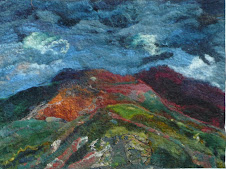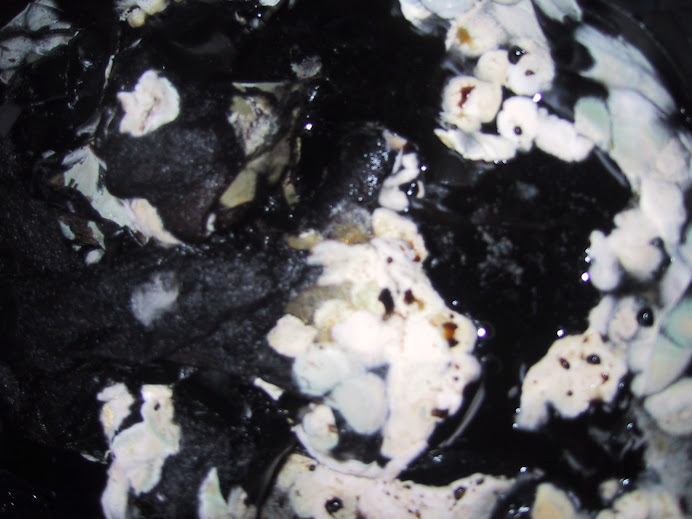Leigh said she did not realise that there was a difference in wood ash lyes. I don't know that there is and Leena commented yesterday that it may have been just the ash of local trees. However when researching for my indigo book I did find that the recipes for fermented indigo called for a wood ash lye from oak. But I managed perfectly well without it. Yesterday I had a stall at an art fair and met up with a friend who as well as making fabulous baskets ( which I use on my stalls) has a husband working in a oak frame business. They reconstruct ancient building etc. as well as building stunning summer houses in oak. She feels he can get me oak chips to burn and possibly beech. Another wood turner ambling past my stall also said he could get me beech chippings so I may be able to try these all out. Incidentally wood ash lye is not difficult to make. There are all sorts of fancy instructions for dripping water though straw etc but I find just pour water onto a thicklayer of woodash in a bucket and leave for a few days does the trick.
The buckthorn bark is bubbling away the pH has now dropped to between 6-7 and the temperature has risen to 45 degrees C.
Still winter here..
-
Finally the Great Lakes are frozen enough that the constant lake effect
snow squalls have eased off. Despite it still being stupidly cold, we've
had...
10 hours ago



























Everytime I look here you are doing interesting things!
ReplyDeleteIt is going to be quite a challenge keeping this up! However I am having such fun my brain keeps on bubbling over with ideas!
ReplyDeleteGosh, that's so simple. Do you use particular proportions of ashes to water? I remember reading that hardwoods worked best, which would explain the recommendation for oak. Not sure about beech trees though. My wood knowledge is rather limited!
ReplyDeleteI ahve jsut been reminded by a friend that Rosetti always recommends vine ash so maybe Leena is right waht works is just ash form local trees.
ReplyDeleteI put about 6 inches of ash in a bucket top up with water,leave for a few days and pour off the clear. I always check the pH before using it But it is always 11-12 rather the same as caustic soda so don't forget to put out of the reach of children and clearly labelled, which of course I am sure you would do but it is just in case!
It was just a thought, but anyway it would be interesting to experiment with different woods. I have also wondered what is special with navajo recipe to mordant with juniper ashes? Why not some other tree, like pine?
ReplyDelete